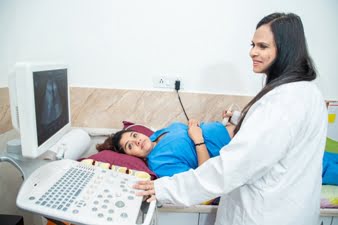Why is a Follicular Study Important?
1. Monitoring Ovulation: The main purpose of a follicular study is to track the growth of follicles in the ovaries and predict ovulation. By determining when an egg is likely to be released, the timing of intercourse or intrauterine insemination (IUI) can be optimized for the highest chance of conception.
2. Assessing Ovarian Response: For women undergoing fertility treatments like in vitro fertilization (IVF) or using ovulation-inducing medications (like Clomid), this test helps monitor how the ovaries respond to the treatment. It ensures that the follicles are growing appropriately and reduces the risk of ovarian hyperstimulation syndrome (OHSS).
3. Planning Assisted Reproductive Techniques (ART): A follicular study is crucial for planning the timing of procedures such as IVF, IUI, and egg retrieval. It helps the healthcare provider decide when to administer the trigger shot (hCG injection) to induce ovulation and plan for egg collection.
4. Diagnosis of Ovulatory Disorders: For women experiencing irregular menstrual cycles or infertility, a follicular study can help diagnose conditions such as polycystic ovary syndrome (PCOS) or anovulation (lack of ovulation). It provides insights into the regularity and quality of ovulation.
USG Follicular Study is a vital ultrasound procedure to track ovarian follicle development and monitor ovulation, aiding in fertility treatments and planning. At Diagnopein, the best sonography centre in Pune, we provide precise and reliable follicular studies using advanced technology. Our expert radiologists ensure accurate results to support your reproductive health journey. For high-quality and affordable sonography services, visit us in Pune today!
Who Should Consider a Follicular Study?
A follicular study is recommended for:
1. Women Experiencing Infertility: For those trying to conceive for over a year without success or those with known ovulatory disorders, a follicular study helps assess the ovulation process.
2. Patients Undergoing Fertility Treatments: Women undergoing IVF, IUI, or using medications to stimulate ovulation often require follicular monitoring to track response and optimize the chances of pregnancy.
3. Women with Irregular Menstrual Cycles: Women with irregular periods, who may not ovulate regularly, benefit from this study to identify when ovulation is likely to occur.
4. Planning Conception Timing: Couples wanting to maximize their chances of conceiving naturally may use a follicular study to determine the best time for intercourse.









